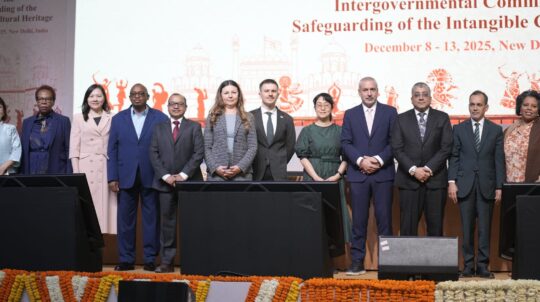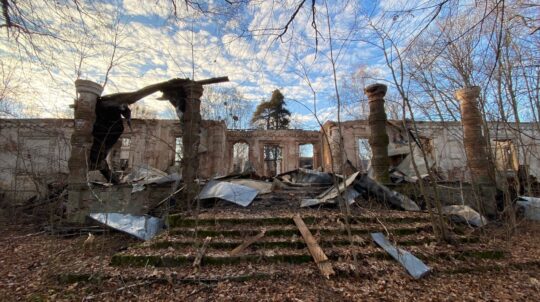On October 15, during the 47th session, the Congress of Local and Regional Authorities of the Council of Europe adopted a Declaration on the Destruction of Cultural Heritage in Ukraine. The Congress reiterated its condemnation of the war of aggression against Ukraine and reaffirmed its unwavering commitment to Ukraine’s independence, sovereignty, and territorial integrity within its internationally recognized borders.
The Minister of Culture and Strategic Communications of Ukraine Mykola Tochytskyi addressed the Congress members online. He emphasized that Ukraine continued to suffer losses, particularly in the cultural sector, due to russia’s aggression. According to the latest data, 129 artists and cultural workers have been killed, and 1,169 cultural heritage sites have been damaged or completely destroyed, 117 of which are of national significance. Additionally, 2,093 cultural institutions have been affected, 361 of which were completely destroyed.
“Our cultural landmarks are the wall upon which the common home of our European identity is built. Their destruction is like tearing the heart out of that home where we all live together. When the historical centers of Lviv and Odesa, inscribed on the UNESCO World Heritage List, are under constant threat, each of us feels that we may lose a part of the shared history that unites us. This is not only our pain, it is the shared pain of all Europe,” said Mykola Tochytskyi.

The Minister mentioned that the Ukrainian government was actively working to preserve cultural heritage, including the evacuation and digitization of artifacts. Additionally, all cases of destruction were being documented to hold the aggressor accountable at the international level. There was also close cooperation with UNESCO and other international organizations that assist in the preservation and restoration of damaged objects. However, Ukraine still faces significant challenges.
In turn, the Congress Declaration emphasizes that russia must pay reparations for the damage caused to Ukraine’s historical, cultural, and religious heritage.The Congress emphasized that it was time to put Ukrainian cultural heritage and its recovery high on the political agenda, including at the 2025 Ukraine Recovery Conference to be held in Rome.
In its Declaration, the Congress also called on local and regional authorities across Europe to intensify their efforts to help Ukraine by establishing genuine partnerships focused on cultural heritage. These partnerships could not only address the immediate need for restoration and urgent protection but also assess the damage and risks. Such partnerships could also support recovery plans that include both tangible and intangible cultural heritage.
The Congress also urged member states to sign and ratify the Council of Europe’s Framework Convention on the Value of Cultural Heritage for Society (Faro Convention) and the Council of Europe’s Convention on Offences Relating to Cultural Property (Nicosia Convention). It also called for increased awareness of stolen and looted Ukrainian cultural property, including from Crimea, and intensified efforts to return them to Ukraine.
Congress members reaffirmed their support for the Ukrainian people and their commitment to a shared, democratic future based on respect for international law and a just peace.
The material includes a photo from the Council of Europe’s portal.

